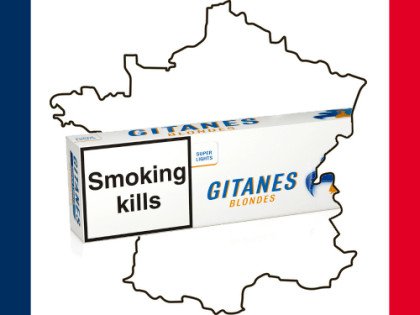The Government’s evidence updates were originally produced by Public Health England – the 2015 version giving us the paradigm shifting statement that vaping is “at least 95% safer than smoking”.
Now released by the revamped Office for Health Improvement and Disparities, “Nicotine vaping in England: an evidence update including health risks and perceptions” cemented vaping’s place in future UK tobacco control policy with a barrage of indisputable facts.
The report repeated that smokers who switch tobacco for electronic cigarettes substantially reduce their exposure to cancer causing toxins and reduce their risk of cardiovascular disease and lung disease because “vaping poses a small fraction of the risks of smoking”.
Public health experts roundly welcomed the release.
Professor Caitlin Notley said: “Reassuringly, the evidence shows that people who switch away from smoking to vaping are exposed to fewer toxic chemicals that may cause disease in later life.”
Dr Lion Shahab said it was “by far the most rigorous, comprehensive, and up-to-date piece work on this topic ever published in the UK.”
Dr Jamie Hartmann-Boyce added that the report supports “the use of e-cigarettes as a way to help people quit smoking”.
Professor Jacob George continued the theme: “I welcome this comprehensive review that clarifies the current evidence base and helps to debunk the many myths surrounding vaping.”
Experts also became active in attacking misinformation in the press. The Observer carried a ridiculous article listing out fictitious “significant health risks” linked to vaping. They wrote to the newspaper to say that the contents of the piece simply didn’t “match the science”.
“The evidence on whether vaping helps smokers to quit is not ‘mixed’, as your editorial suggests. The weight of high-quality evidence – from Cochrane, among others – shows e-cigarettes are more effective than nicotine replacement therapy in helping smokers quit. Cochrane reviews are a highly trusted source of objective health evidence used by policy makers worldwide,” they said.
Companies took a proactive stance on harm reduction, once again doing the Government’s job for it. Vape Club offered smokers the chance to win £500 if they successfully switched during the month of Stoptober.
Dan Marchant, director at Vape Club, said: “Stoptober is a great opportunity to quit smoking if you’re looking to stub it out.”
Meanwhile questions were being raised in Parliament asking what had happened to the long-promised Tobacco Control Plan that incorporated the recommendations from the Khan Review. Professor Sir Chris Whitty repeated the call for its publication at a medical ethics symposium.
Doug Mutter, Director of VPZ, also felt that the Government needed to step up its regulatory game. “It is vital that we have tighter controls and licensing for selling vaping products,” he commented.
A problem the Government was encountering with developing the Tobacco Control Plan was that the Secretary of State for the Department of Health was never around long enough to organise their desk drawers let alone formulate coherent policy. From the initial plans laid out by Matt Hancock, we saw Sajid Javid, Steve Barclay, Thérèse Coffey and then Steve Barclay again have a stab.
The New Nicotine Alliance wrote to Coffey to detail “twenty concrete measures with five quick wins that could be taken to bring on a rapid decline in smoking”, that “would promote both public health and personal and economic wellbeing and help the government in pursuit of its Smokefree 2030 goal.”
These included simple steps like:
- Lift the EU-imposed ban on snus
- Remove the EU-imposed 20mg/ml limit on the strength of nicotine e-liquid
- Eliminate pointless EU-imposed restrictions on tank and refill container sizes
- Replace excessive and inappropriate warnings on vaping products
- Replace excessive and inappropriate warnings on non-combustible tobacco products
Unfortunately, Thérèse Coffey was set on throwing the Tobacco Control Plan onto “the ideological bonfire”. Fortunately, she had tied herself to the Liz Truss circus and was promptly replaced.
All indications are that the Government is set to reject most of Khan’s proposals and keeps promising to release the Tobacco Control Plan “at some point”, but Steve Barclay has not indicated when and so we wait – as will the majority of tobacco retailers who ASH UK surveyed. They said the Government should be acting to put “a levy on tobacco manufacturers to pay for measures to help smokers quit and raising the age of sale to 21”.
The Global State of Tobacco Harm Reduction released “The Right Side of History”, a comprehensive report charting the history of tobacco harm reduction to date and considers the future of a strategy that can hasten the end of smoking
“Progress is being hampered,” said Harry Shapiro, the report’s author. “Although disruption is not always comfortable, the genie is out of the bottle - these new technologies demand the development of new policies and new thinking.”
As the year ends, a Kent-based environmentalist called on the Government to fulfil its commitment to get around to releasing the findings of an evidence gathering exercise conducted by the Department for Environmental Food & Rural Affairs’ back in January. The consultation process considered the issue of disposables but the chance of finding out anything appears slim as the new Secretary of State for the Department is - Thérèse Coffey.
Responding to ongoing interest in disposable vapes and environmental sustainability, the industry leaders took decisive action once more: Geek Bar launched VapeWatch, a website containing information for retailers, and ElfBar launched a 2011-style single-use-plastic cigalike.
The history having been documented, 2022 gives us an indication of the future. We have seen companies being taken over, business is being consolidated into fewer and fewer hands. Others have felt the impact of shifting regulation, such as FastTech which shut its online doors forever.
Plus, despite Geek Bar and ElfBar procrastinating when it comes to recycling and the use of recycled components, the disposables sector is heading in a sustainable direction with many companies now adopting greener manufacturing and/or retail practises. 2023 looks set to be the greenest yet for the vape industry.
Photo Credit:
2022 photo by Kenta Kikuchi on Unsplash, edited for size, cropped, and year motif added
Dave Cross
Journalist at POTVDave is a freelance writer; with articles on music, motorbikes, football, pop-science, vaping and tobacco harm reduction in Sounds, Melody Maker, UBG, AWoL, Bike, When Saturday Comes, Vape News Magazine, and syndicated across the Johnston Press group. He was published in an anthology of “Greatest Football Writing”, but still believes this was a mistake. Dave contributes sketches to comedy shows and used to co-host a radio sketch show. He’s worked with numerous start-ups to develop content for their websites.
Join the discussion
CAPHRA Highlights Tobacco Control Flaws
The Coalition of Asia Pacific Tobacco Harm Reduction Advocates highlights the flaws in tobacco control which has led to the rise of black market in Australia
Come To GFN24!
Everyone is going to be welcome at #GFN24 as organisers say it will be an “antidote” to clandestine WHO COP10 and its meetings behind closed doors
CAPHRA Repeats Call For Transparency
Consumer body CAPHRA has repeated calls for greater transparency and engagement from World Health Organisation Framework Convention on Tobacco Control officials
French Plans Will Push People To Smoke
The French government’s nicotine and tobacco policy risks pushing people towards cigarettes says a consumer advocacy organisation






-listing400.jpg)




